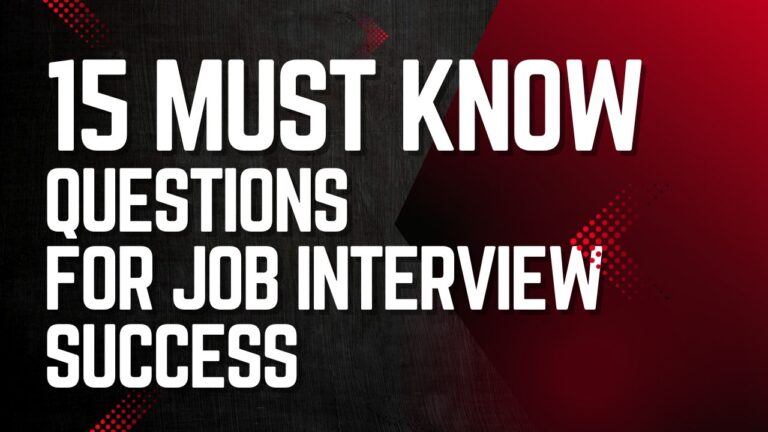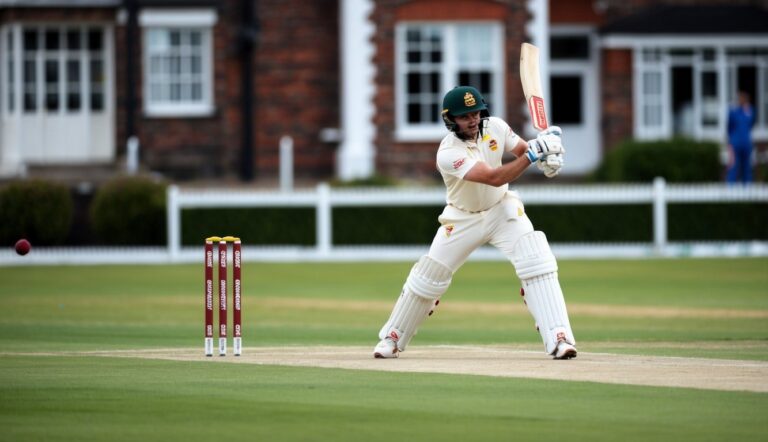25 Interview Questions for Sports Management with Sample Answers

When preparing for a sports management interview, having the right questions and answers can make a big difference. This article provides 25 interview questions complete with answers that can help you stand out in a sports management job interview.
With these insights, you can approach your interview ready and equipped with knowledge.
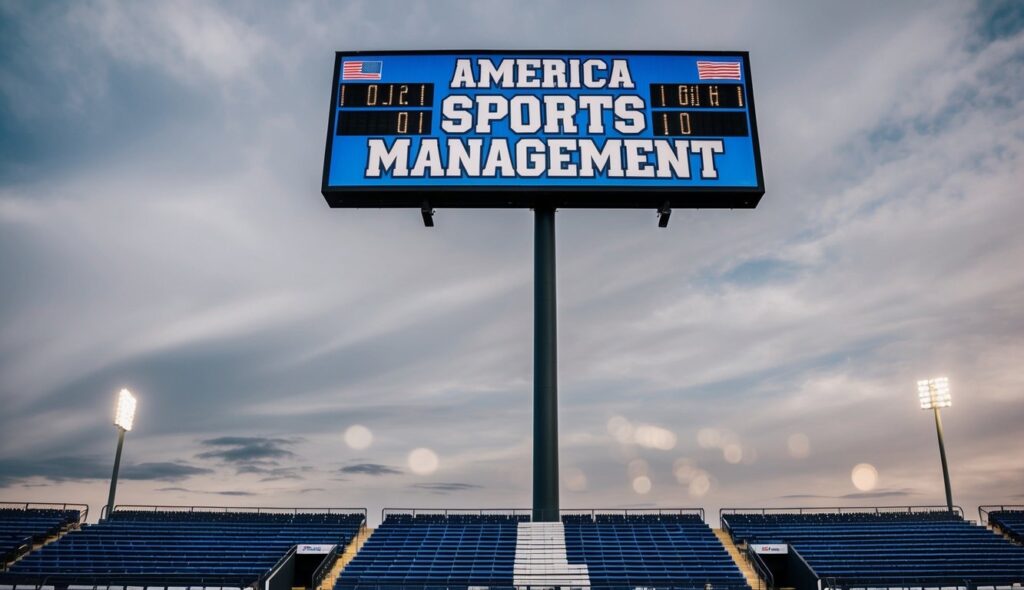
You’ll find questions that focus on leadership, decision-making, and industry knowledge. Addressing these areas can show your potential employer how well you fit the role.
By understanding these questions and the best ways to answer, you increase your chances of making a great impression.
Engaging with these questions will help you think critically about the sports industry. Not only do you learn what employers are looking for, but you also understand how to present your skills and experience effectively.
Understanding the Role
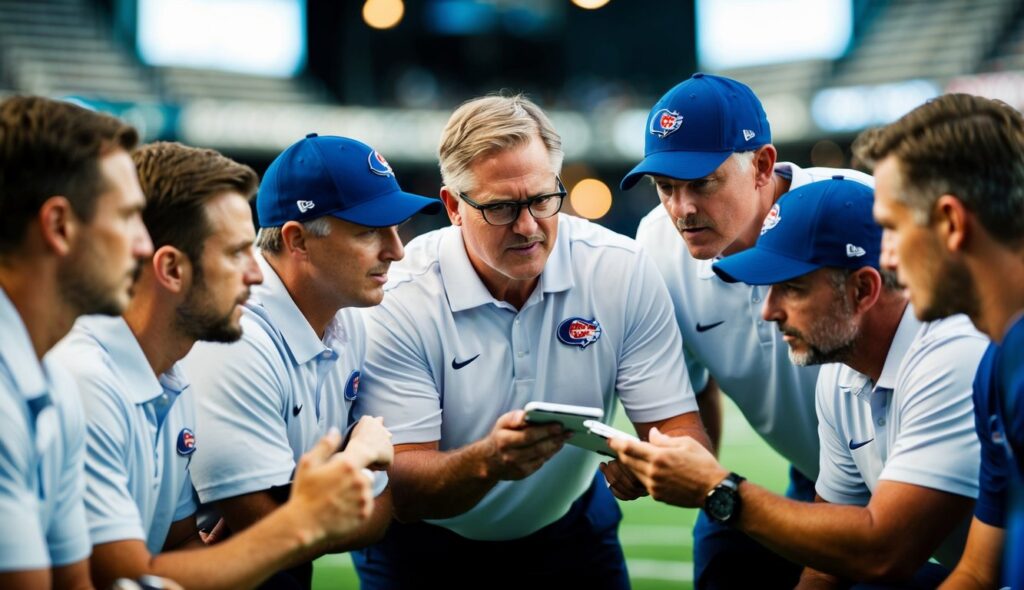
To succeed in sports management, you need a clear grasp of the responsibilities, pathways for career growth, and key skills essential for success. A sports manager wears many hats and is integral to the smooth operation of sports organizations.
Core Responsibilities of a Sports Manager
As a sports manager, your duties include overseeing team operations, handling budgets, and coordinating events. You manage the day-to-day activities of sports teams or facilities, making sure everything functions efficiently.
Team management is crucial. You maintain player and staff relations, ensuring everyone meets their goals. Budget management is another key aspect, requiring you to allocate resources wisely and track expenses.
Event organization also falls under your purview. You are responsible for planning tournaments, securing venues, and managing logistics.
Career Path and Professional Growth in Sports Management
Sports management offers diverse career paths. You might start as a sports coordinator or assistant manager. As you gain experience, you can advance to higher roles like general manager or director.
Professional growth in this field involves continuous learning. Networking plays a big role. Engaging with industry professionals at conferences or seminars can lead to new opportunities.
Certifications can enhance your career prospects. Pursuing specialized courses in sports management or leadership skills can give you a competitive edge.
Key Skills and Qualities of Successful Sports Managers
To thrive in this field, strong leadership skills are vital. You must motivate and guide your team to success. Effective communication skills are equally important. Clear communication keeps all stakeholders informed and aligned.
Problem-solving and decision-making abilities set successful managers apart. You need to handle unexpected situations calmly and find effective solutions quickly.
Furthermore, being organized helps you manage multiple tasks efficiently. Passion for sports can also drive you to excel in your role, bringing enthusiasm and dedication to your work.
List of Background Interview Questions for Sports Management

This section covers different areas that showcase your experience, management style, and problem-solving abilities in sports management. Key points include leadership approach, handling team conflicts, and negotiating contracts.
Experience and Background
Question: Can you tell me about your background in sports management?
Sample Answer: I have over five years of experience working as an assistant manager for a professional soccer team. During this time, I managed operations, coordinated training schedules, and supported game day preparations.
My education includes a Bachelor’s degree in Sports Management, where I gained skills in sports finance and marketing. My hands-on experience has equipped me to manage a sports team effectively.
Question: What has been your biggest achievement in your sports management career?
Sample Answer: Leading a successful sponsorship campaign for our team was a significant achievement. The campaign increased revenue by 25% and allowed us to invest in new training facilities.
Management Style and Decision-Making
Question: How would you describe your management style?
Sample Answer: I take a collaborative approach. I believe in setting clear goals and working closely with my team members to achieve them. This style fosters an environment where everyone feels valued and motivated to contribute.
By involving the team in decision-making, I ensure diverse perspectives are considered, leading to more effective strategies.
Question: Can you give an example of a tough decision you made?
Sample Answer: When faced with budget cuts, I had to prioritize spending on essential training programs over less crucial activities. I consulted with the coaching staff to determine which programs had the most impact on performance, ensuring the team remained competitive.
Conflict Resolution and Team Dynamics
Question: How do you handle conflict within a team?
Sample Answer: I prioritize open communication and understanding each person’s perspective. By facilitating a discussion where team members can express their concerns, I identify common ground and work toward a solution that satisfies everyone. This approach helps maintain a positive team dynamic and fosters trust.
Question: Can you give an example of resolving a conflict in a team setting?
Sample Answer: Two players had a disagreement over playing time, which affected team morale. I arranged a meeting where they could express their thoughts and find a compromise. This not only resolved the issue but also improved team spirit.
Contract Negotiations and Problem-Solving
Question: What strategies do you use in contract negotiations?
Sample Answer: I focus on preparation and understanding both parties’ needs. By researching thoroughly and entering negotiations with clear goals, I aim to create win-win situations.
Building strong relationships and maintaining transparency are also key components of my strategy.
Question: Describe a time you had to solve a difficult problem during contract negotiations.
Sample Answer: I once had to negotiate a contract for a player who was in high demand. I highlighted our team’s culture and growth opportunities, which convinced the player to join. Through strategic negotiation, I ensured terms were favorable to both the player and the team.
Interview Questions for Sports Management (with Sample Answers)

In sports management, you often encounter high-pressure situations, need to boost team performance, and handle public relations. Here are some questions you might face and examples of effective answers.
Dealing with Crisis and Complex Negotiations
Q: How would you address a sudden crisis, like a scandal involving a team member?
Start by gathering all the facts while maintaining open communication with stakeholders. Demonstrating a calm and strategic approach is crucial.
You might say, “I would immediately consult with legal and PR teams to develop a response plan and ensure support for the person involved.”

Q: Tell us about handling tough negotiations with sponsors.
Highlight your negotiation skills by explaining listening actively to understand sponsor needs. You can add, “I focus on establishing a win-win solution that aligns both parties’ objectives.”
Optimizing Team Performance and Training Regimen
Q: What strategies do you use to enhance a team’s performance?
Discuss how regular assessments and feedback can help. An answer might be, “I implement performance tracking systems and adjust training plans based on data-driven insights.”
Q: How do you design an effective training regimen?
Explain your method of incorporating varied drills and practices that focus on both strengths and weaknesses. You might say, “I create tailored sessions that align with individual and team goals to ensure optimal performance.”
Engaging in Effective Public Relations
Q: How do you manage a team’s public image?
Emphasize proactive strategies and communication skills. You could state, “I focus on maintaining transparent and positive engagement with media and fans to promote a strong team brand.”
Q: Describe your experience with crisis communication in public relations.
Share an instance where you handled a public relations challenge. A fitting reply is, “I managed to pacify a situation through timely press releases and assured consistency in messaging across all platforms.”
Use these examples to prepare for your own responses and refine your approach in various scenarios that are specific to sports management.
List of 10 Interview Questions with Sample Answers for Sports Management Interview

- How do you handle negotiating contracts with players? Sample Answer: You focus on building trust and clearly communicating the needs of both parties. This helps in reaching a fair agreement that benefits everyone involved.
- What strategies do you use for team-building? Sample Answer: You create activities that foster teamwork and set clear goals for the group to work towards together.
- Describe a time you successfully managed a sports event. Sample Answer: You organized a local tournament by coordinating schedules, managing volunteers, and ensuring each detail was attended to.
- How do you keep up with trends in sports management? Sample Answer: You regularly read industry publications and attend workshops to stay informed about changes and new strategies.
- What is your approach to conflict resolution among team members? Sample Answer: You listen to each person’s perspective and work towards a resolution that considers everyone’s viewpoint.
- How do you set goals for professional growth? Sample Answer: You set specific, achievable goals and regularly evaluate your progress to stay on track.
- What role does communication play in your career in sports? Sample Answer: Communication is key; it helps you ensure that everyone understands their roles and responsibilities.
- How do you prioritize tasks during a busy sports season? Sample Answer: You use a planner to organize tasks by deadlines and importance, ensuring timely completion.
- What experience do you have with budget management? Sample Answer: You have managed budgets for events by carefully tracking expenses and adjusting plans as needed.
- How do you measure success in your role in sports management? Sample Answer: You measure success by evaluating team performance and personal growth against objectives set at the beginning of the season.
Frequently Asked Questions: Sports Management Interview

In sports management, facing challenges, staying updated, measuring project success, boosting financial health, and leveraging social media are key areas to focus on. Here are some common questions related to these topics.
Can you describe a challenging situation in sports management you’ve faced and how you overcame it?
You might face situations like budget cuts or team conflicts. To overcome these, it helps to stay calm and work on effective communication and problem-solving strategies.
How do you stay informed about the latest developments in sports management?
You can keep up-to-date by reading industry publications, attending conferences, and engaging in professional networks. Subscribing to newsletters and following key sports management figures on social media can also be beneficial.
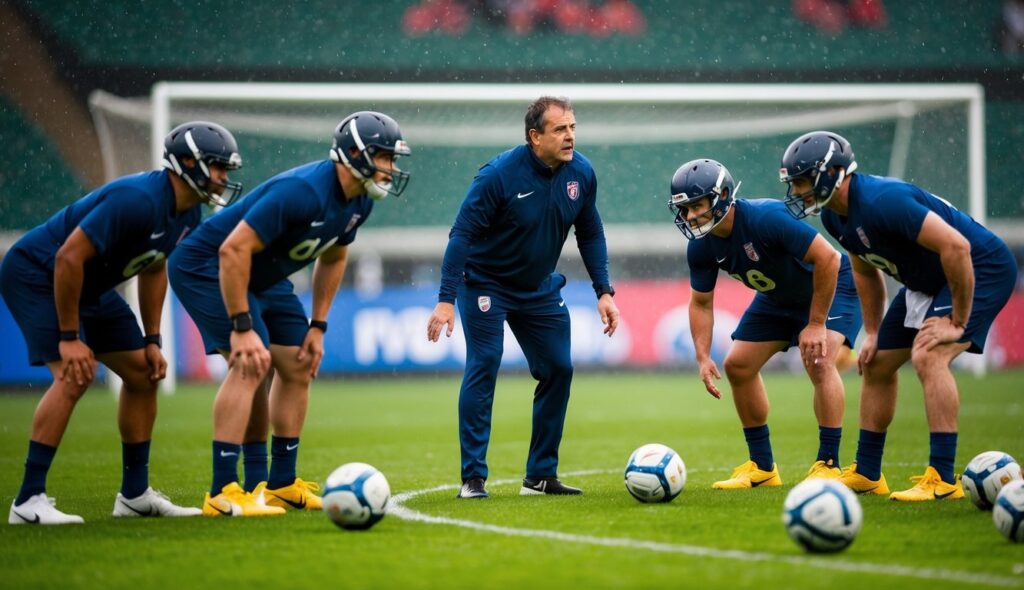
How do you measure the success of a sports management project?
Consider metrics like attendance figures, revenue growth, and team performance. Feedback from stakeholders can offer insights, too. Analyzing these aspects helps you understand the project’s effectiveness.
In what ways have you contributed to the financial health of a sports organization?
Your role may involve budgeting, seeking sponsorships, or negotiating contracts. These actions can directly impact the organization’s bottom line. Being strategic and careful with financial decisions builds healthy financial practices.
What role do you believe social media plays in sports management today?
Social media is vital for promoting events, engaging fans, and enhancing brand visibility. It offers real-time interaction and boosts community involvement. Understanding digital tools and trends can improve outreach and engagement strategies.
All the Best !


